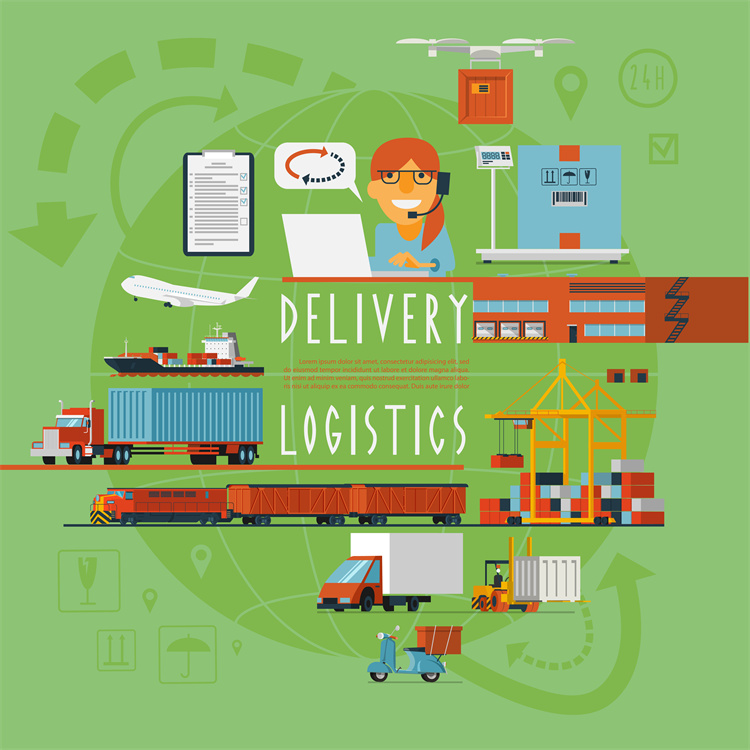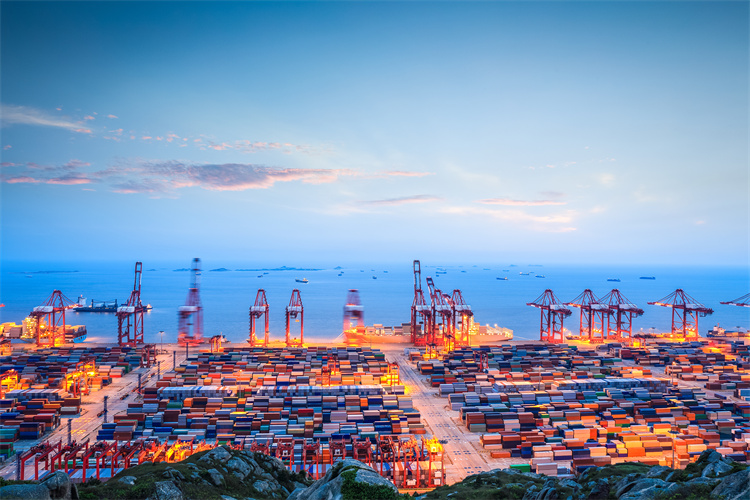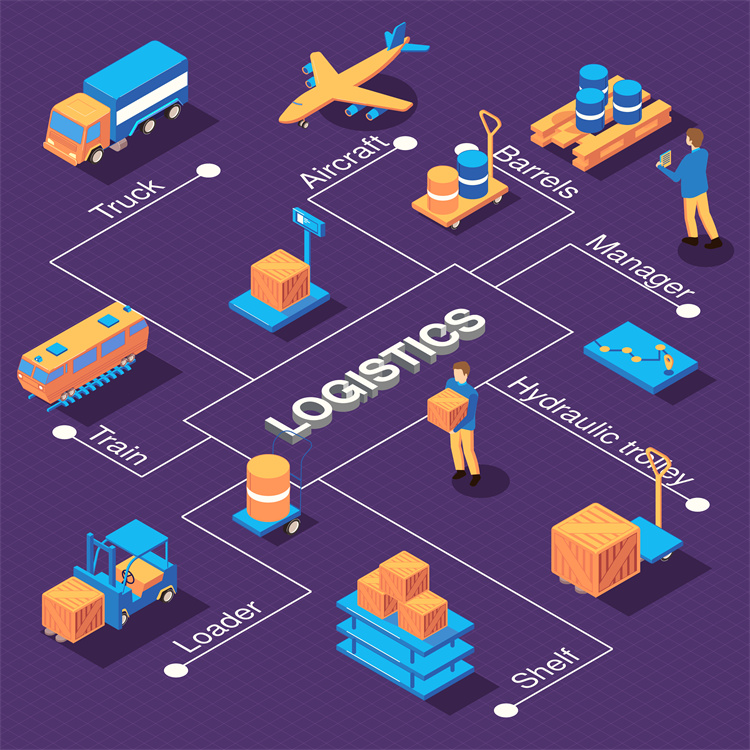The Deglobalization Myth: How Europe’s supply chains are changing

The Deglobalization Myth suggests a retreat from global interconnectedness. Many believe this shift leads to isolated economies. However, evidence shows international trade remains robust. The European Union's trade concentration fluctuates but does not indicate a significant decline. JUSDA Supply Chain Management International Co., Ltd. exemplifies adaptation in Europe's supply chains. JUSDA leverages advanced technologies to enhance supply chain resilience. This approach challenges the notion of deglobalization by showcasing strategic regionalization and innovation.
Understanding the Deglobalization Myth
The Concept of Deglobalization Myth
Definition and Origins
The term "Deglobalization Myth" refers to the belief that global interconnectedness is declining. This concept emerged in response to economic shifts and geopolitical tensions. Many observers interpreted these changes as a retreat from globalization. However, the reality presents a more complex picture. Global value chains (GVCs) powered international trade after 1990. GVCs now account for almost half of all trade. This development enabled economic convergence between poor and rich countries. Despite this, the growth of trade has been sluggish since the 2008 global financial crisis.
Common Misconceptions
Several misconceptions surround the Deglobalization Myth. Many believe that global trade is shrinking. However, trade in intermediate goods and services remains vital. This trade reflects the interconnectedness of economies. The European Union continues to engage in complex supply chains. These chains span across multiple countries. The increasing share of trade in intermediate services underscores the expanding role of services in the global economy. This trend highlights the ongoing integration of global markets.
Impact on Global Trade
Perceived vs. Actual Changes
Perceptions of deglobalization often differ from reality. Some view regionalization as evidence of deglobalization. However, regional networks complement global trade. These networks enhance supply chain resilience. The shift towards regionalization does not equate to isolation. Instead, it represents strategic adaptation. Companies seek to balance efficiency and risk management. This approach ensures continued participation in global markets.
The Role of Technology
Technology plays a crucial role in shaping modern supply chains. Digital solutions facilitate seamless communication. These tools enable real-time data sharing. Advanced technologies support complex logistics operations. Companies leverage technology to optimize supply chain performance. This innovation enhances flexibility and responsiveness. The integration of digital solutions strengthens global trade networks. This development challenges the Deglobalization Myth by demonstrating ongoing collaboration.
Evolution of Europe’s Supply Chains

Regionalization Trends
Shift from Global to Regional Networks
The Deglobalization Myth suggests a retreat from global trade. However, European supply chains demonstrate a shift towards regional networks. Companies now focus on sourcing business functions closer to home. This trend reflects strategic adaptation rather than isolation. The regionalization perspective by Rugman and Verbeke supports this shift. Businesses aim to enhance efficiency and reduce risks. Regional networks offer a more resilient supply chain structure.
Benefits of Regionalization
Regionalization provides numerous advantages. Companies experience reduced transportation costs. Shorter distances lead to faster delivery times. Businesses gain greater control over their supply chains. Local sourcing minimizes dependency on distant suppliers. Enterprises enjoy improved flexibility in operations. Regional networks allow quick responses to market changes. The Deglobalization Myth overlooks these benefits. Regionalization strengthens Europe's supply chain resilience.
Technological Advancements
Integration of Digital Solutions
Technology plays a pivotal role in modern supply chains. Companies integrate digital solutions for seamless operations. Real-time data sharing enhances decision-making processes. Advanced technologies optimize logistics management. Businesses use digital tools to track shipments accurately. Automation reduces human error and increases efficiency. The Deglobalization Myth fails to account for these innovations. Technology ensures continuous global collaboration.
Enhancing Supply Chain Resilience
Supply chain resilience remains a top priority. Companies leverage technology to build robust networks. Digital platforms provide insights into potential disruptions. Businesses can proactively address challenges with data analytics. Enhanced visibility allows for better risk management. Supply chains become more adaptable to unforeseen events. The Deglobalization Myth underestimates the power of technology. Innovations ensure Europe's supply chains remain interconnected.
JUSDA: A Case Study in Supply Chain Innovation
Overview of JUSDA
Company Background
JUSDA Supply Chain Management International Co., Ltd. stands as a leader in supply chain technology management. The company operates under the authorization of Foxconn Technology Group. JUSDA excels in providing end-to-end supply chain solutions. These solutions encompass raw material procurement, manufacturing, and distribution. The company's global presence includes 155 service points worldwide. JUSDA's operations cover over 2.5 million square meters of warehousing space. The company manages more than 2,000 international service routes.

JUSDA Solutions
To provide you with professional solutions and quotations.
Key Achievements
JUSDA has earned recognition as a unicorn enterprise. The company consistently appears on the Chinese logistics service industry unicorn enterprise list. JUSDA also features on the Hurun Global Unicorn List from 2019 to 2024. In 2023, the Harvard Business Review (Chinese version) honored JUSDA with the "Dingge Award Annual Industrial Platform Enterprise." These accolades highlight JUSDA's innovative approach to supply chain management. The company holds national AAAAA comprehensive logistics enterprise certification. JUSDA also possesses AEO enterprise senior certification and ISO9001 accreditation.
JUSDA’s Services and Technologies
Multimodal Transportation
JUSDA offers a mature global ocean freight network. The company guarantees stable space allocation for Full Container Load (FCL) and Less than Container Load (LCL). This flexibility proves crucial for businesses navigating fluctuating market conditions. JUSDA provides value-added services like temperature-controlled transportation. These services ensure the safe movement of goods across borders. The Deglobalization Myth overlooks such innovations in supply chain resilience.
Air and Rail Freight
JUSDA's air freight services feature a rich route network. Established routes include China-Mexico-US and Vietnam-US. Planned expansions aim to connect China and India. JUSDA optimizes airfreight costs through a three-stage consolidation service. This service adapts to seasonal fluctuations, enhancing connectivity with international markets. Rail freight services specialize in full-container and less-than-container-load options. JUSDA offers international Eurasian sea-rail intermodal transport. These services diversify logistics options for European companies.
Cloud Warehousing
JUSDA's cloud warehouse service supports multi-channel sales. Businesses achieve automated warehousing through a big data platform. The service includes unified management of Vendor Managed Inventory (VMI) and Customer Managed Inventory (CMI). Seamless integration with clients' systems ensures efficient logistics management. The Deglobalization Myth fails to account for such technological advancements.
Integrated Logistics Solutions
JUSDA provides customized storage and distribution solutions. The company excels in home appliance assembly and delivery. A self-developed e-commerce storage system processes a vast number of orders daily. This capability enhances e-commerce operations for European businesses. The Deglobalization Myth underestimates the role of integrated logistics in global trade.
Platforms like JusTrade and JUSDA SR
JUSDA's JusTrade platform offers a one-stop full-lifecycle foreign trade service. The platform assists import-export enterprises in outsourcing non-core businesses. Resources from customs clearance, taxation, and transportation integrate into JusTrade. This integration simplifies international trade procedures. JUSDA SR empowers cross-border new retail supply chains. The service delivers professional direct express lines and overseas warehousing. The Deglobalization Myth overlooks these platforms' impact on global supply chains.
Impact on European Supply Chains
Enhancing Efficiency
JUSDA enhances efficiency through advanced technologies. The company's smart supply chain system integrates suppliers, manufacturers, and customers. The JusLink platform supports supply chain management and operation services. Real-time data sharing enables precise business decision-making. The Deglobalization Myth ignores such technological contributions to supply chain efficiency.
Meeting Complex Demands
JUSDA meets complex demands with its innovative solutions. The company's services adapt to highly variable customer needs. Digital-driven smart manufacturing collaboration drives the entire supply chain network. JUSDA's multi-level linkage system ensures seamless coordination. The Deglobalization Myth fails to recognize the adaptability of modern supply chains.
The Future of European Supply Chains

Continued Regionalization
Trends and Predictions
European supply chains continue to evolve. Many enterprises focus on regionalization. This trend reflects strategic adaptation. Companies aim to enhance efficiency. Local sourcing reduces transportation costs. Shorter distances lead to faster deliveries. Businesses gain greater control over operations. The Deglobalization Myth overlooks these benefits. Regional networks strengthen resilience.
Survey Results:
International sourcing: EU enterprises increasingly source business functions abroad.
Regional nature: Over 85% of firms maintain supply chains within North America.
The future holds promise for regionalization. Companies will likely continue this trend. Businesses seek to balance efficiency and risk management. The Deglobalization Myth fails to recognize this strategic shift. Regionalization offers opportunities for growth.
Challenges and Opportunities
Regionalization presents challenges. Companies must navigate complex regulations. Businesses face potential trade barriers. Enterprises need to adapt to local market demands. The Deglobalization Myth underestimates these hurdles. However, opportunities abound. Regional networks offer flexibility. Companies can quickly respond to changes. Local sourcing minimizes dependency on distant suppliers. Businesses enjoy improved operational control. The Deglobalization Myth ignores these advantages.
Leveraging Global Networks
Balancing Regional and Global Strategies
Successful supply chains require balance. Companies must integrate regional and global strategies. Businesses leverage global networks for growth. The Deglobalization Myth suggests isolation. However, integration remains crucial. Companies benefit from diverse markets. Global networks enhance resilience. Businesses optimize supply chain performance. The Deglobalization Myth fails to account for this balance.
Survey Results:
Supply Chain 2.0 framework: Transformation from current models to Supply Chain 2.0.
Automation: Companies using automation have a bigger scope to grow.
The Role of Innovation
Innovation drives supply chain success. Companies embrace advanced technologies. Digital solutions enhance communication. Real-time data sharing improves decision-making. Automation increases efficiency. The Deglobalization Myth overlooks these innovations. Technology ensures continuous collaboration. Businesses adapt to changing demands. The Deglobalization Myth underestimates the power of innovation.
Survey Results:
Automation throughout supply chain: Companies using automation experience significant growth.
Innovation strengthens global networks. Companies leverage technology for resilience. Businesses optimize logistics operations. The Deglobalization Myth fails to recognize this potential. Innovation ensures Europe's supply chains remain interconnected.
The Deglobalization Myth suggests a retreat from interconnected supply chains. However, Europe's supply chains are evolving. Regionalization and technology drive this evolution. Companies leverage automation and real-time communication for growth. The Supply Chain 2.0 framework enhances responsiveness and efficiency. JUSDA plays a key role in this transformation. JUSDA's innovative solutions strengthen supply chain resilience. The Deglobalization Myth overlooks these advancements. Companies like JUSDA demonstrate the ongoing integration of global networks. Europe's supply chains continue to adapt and thrive.
See Also
Overcoming Globalization's Supply Chain Expansion Hurdles
The Significance of Supply Chains in Global Trade
Decoding Global E-commerce Success with Supply Chain Transparency
Exploring Global Consumer Trends through Jusda's Supply Chains
Transforming Transportation: How Supply Chain Innovation Reshapes Logistics
